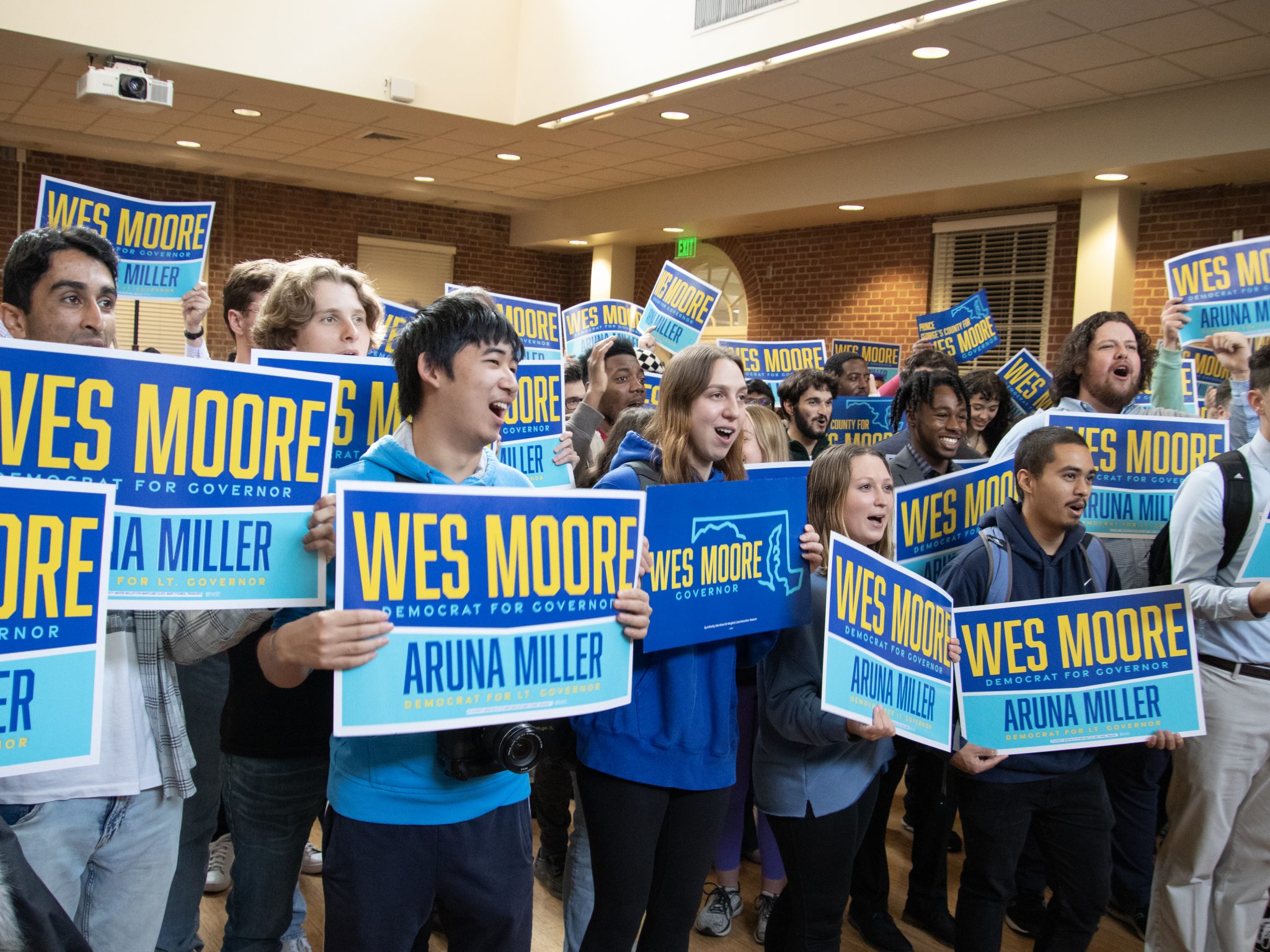Views expressed in opinion columns are the author’s own.
How does Wes Moore make you feel?
When you saw his brightly-colored logo on billboards or heard his enthusiastic tone in campaign ads, did it make you feel hopeful for Maryland’s future? If you were anything like one-third of Democratic gubernatorial primary voters — or two-thirds of this state’s voters in November — Moore’s brand won you over. Our state’s next senator will need a progressive brand like Moore’s to win.
In this case, branding is not just about logo design or social media aesthetic, although that’s certainly part of it. Every candidate in American political history had a brand that was defined by how people viewed them. Some of these brands came with taglines.
Remember “Tippecanoe and Tyler too?” No? How about, “Make America Great Again?” The aggressive, vaguely-patriotic slogan summed up Donald Trump’s whole brand in four words.
Maryland’s gubernatorial primary last year had three main candidates: state Comptroller Peter Franchot, former Secretary of Labor Tom Perez and Moore.
Of those three, only Moore’s campaign had a slogan: “Leave No One Behind.”
This catchphrase, combined with Moore’s youth and boundless charisma, formed a winning brand and helped him overcome his relative lack of political experience. Summed up in a word, the brand was progressive.
Design-wise, progressive brands in politics have included vibrant blues and sans-serif block lettering. Minimalist logo designs have found success in recent years, with “Obama’s O” providing a blueprint for future Democratic candidates.
Obama’s inspiring message evoked a feeling in voters that catapulted him into the White House: hope. After his election, Americans’ view of race relations reached a high point, international opinion of the country improved and the electorate diversified racially. A unifying brand centered on change and optimism, as evidenced by his presidency, makes our country stronger.
With the nation’s hope invested in a candidate, their mandate becomes impenetrable. Maryland’s next senator can capture this progressivism to instill hope in their constituents.
Moore’s high approval rating goes hand-in-hand with a majority of Marylanders characterizing Moore as progressive. In contrast, moderate President Joe Biden’s approval in Maryland is seven points lower than Moore’s. It’s clear that, in Maryland, progressivism sells.
Progressives have dominated Maryland’s political scene, which boast some of the bluest waves in the country. Campaigns setting sail this cycle must heed the winds of change, which blow firmly to the left as Generation Z floods the scene.
Progressive branding will guide legislative candidates into Senate seats, one of which will be vacated by Sen. Ben Cardin (D-Md.) in 2024.
Over his 58 years campaigning and serving in the government, Cardin has formed a brand centered on moral integrity, character and accomplishment. While these are noble traits to aspire to, Cardin’s outdated branding is falling out of style with younger voters.
Another prominent, older legislator, 89-year-old Dianne Feinstein, is currently facing calls to resign amid an extended leave of absence that has left Democrats shorthanded. Nationally, the median age of the American population is 38, while the median age of Congress members is two decades older.
Looking for an alternative, Maryland voters seem likely to flock to older politicians’ opponents. Cardin’s eventual replacement may lack in experience and rapport, but would make up for it with charisma, modernity and a forward-thinking brand.
As the crowd of Democratic candidates for the coveted seat gets bigger, candidates may have a difficult time standing out. With many candidates agreeing on core political values, voters may end up choosing based on vibes alone. In politics, vibes are simply the results of a carefully-curated brand forged by highly-paid professionals. Public perception will decide the winner, and branding will decide public perception before the race even begins.
Furthermore, if these candidates fail to separate from one another, a fractured Democratic base could be an opportunity for Republicans to swoop in. Even though their party garnered less than one-third of the gubernatorial vote last year, a Republican could use modern branding to whittle away the 24 percent gap between Republican and Democratic voters in Maryland.
Marylanders deserve a senator that can show the country what we offer: a model for the equitable policies that our nation desperately needs. The candidate who embraces this people-focused, progressive approach will emerge from the Democratic crowd and unite our state under their brand.
Joey Barke is a sophomore government and politics and journalism major. He can be reached at joey@terpmail.umd.edu



